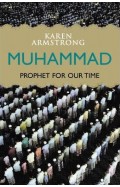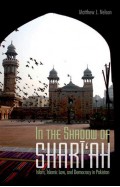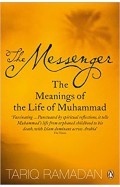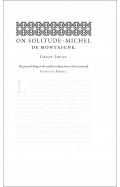Hidden Caliphate
By: Waleed Ziad
-
Rs 2,340.00
- Rs 2,600.00
- 10%
You save Rs 260.00.
Due to constant currency fluctuation, prices are subject to change with or without notice.
In a pathbreaking book, Waleed Ziad tells the story of Central and South Asia through the lens of transnational Sufi networks from the 18th century onwards, offering a vital new perspective on a region long understood only through European imperial histories. Having conducted fieldwork across Afghanistan, Pakistan, and Central Asia, in 140 towns and villages, often living with religious communities in the Afghan-Pakistan border areas, Ziad shows how Asia was knit together by networks of Sufis centered in the region’s chief cities, notably Peshawar and Bukhara. These Sufis, known as the Naqshbandi-Mujaddidis, fused Persian, Arabic, Turkish, and Indian literary traditions, mystical virtuosity, popular religious practices, and urban scholasticism in a unified yet flexible expression of Islam. They brought cohesion to diverse Muslim communities from Punjab to the Central Asian steppes and Siberia. Always misrepresented by colonial actors, these Sufis were the major force of military, social, and ideological resistance against the British and Soviet invasions through the 19th and 20th centuries and their influence is still felt today across the Muslim world.
Ziad fuses social history, religious studies, and anthropology to offer a new vision of Islamic sovereignty, where a Hidden Caliphate of Sufis provided order in times of political upheaval and fragmentation. Correspondingly, he demonstrates the place of regions like Kabul, Dera Ismail Khan, and Farghana, as pivot points of Eurasia where a host of knowledge systems, spiritual and scholastic networks, and nationalities blended. This work is therefore essential in not only reframing our understanding of the history of Afghanistan, Pakistan, and their neighbors, but tracing how the region transformed from a cosmopolitan center with a flexible religious tradition into a breeding ground for exclusionary, monolithic interpretations of Islam.
In a pathbreaking book, Waleed Ziad tells the story of Central and South Asia through the lens of transnational Sufi networks from the 18th century onwards, offering a vital new perspective on a region long understood only through European imperial histories. Having conducted fieldwork across Afghanistan, Pakistan, and Central Asia, in 140 towns and villages, often living with religious communities in the Afghan-Pakistan border areas, Ziad shows how Asia was knit together by networks of Sufis centered in the region’s chief cities, notably Peshawar and Bukhara. These Sufis, known as the Naqshbandi-Mujaddidis, fused Persian, Arabic, Turkish, and Indian literary traditions, mystical virtuosity, popular religious practices, and urban scholasticism in a unified yet flexible expression of Islam. They brought cohesion to diverse Muslim communities from Punjab to the Central Asian steppes and Siberia. Always misrepresented by colonial actors, these Sufis were the major force of military, social, and ideological resistance against the British and Soviet invasions through the 19th and 20th centuries and their influence is still felt today across the Muslim world.
Ziad fuses social history, religious studies, and anthropology to offer a new vision of Islamic sovereignty, where a Hidden Caliphate of Sufis provided order in times of political upheaval and fragmentation. Correspondingly, he demonstrates the place of regions like Kabul, Dera Ismail Khan, and Farghana, as pivot points of Eurasia where a host of knowledge systems, spiritual and scholastic networks, and nationalities blended. This work is therefore essential in not only reframing our understanding of the history of Afghanistan, Pakistan, and their neighbors, but tracing how the region transformed from a cosmopolitan center with a flexible religious tradition into a breeding ground for exclusionary, monolithic interpretations of Islam.
Hidden Caliphate: Sufi Saints beyond the Oxus and Indus
By: Waleed Ziad
Rs 13,170.75 Rs 15,495.00 Ex Tax :Rs 13,170.75
Zubin Mehta: A Musical Journey (An Authorized Biography)
By: VOID - Bakhtiar K. Dadabhoy
Rs 892.50 Rs 1,050.00 Ex Tax :Rs 892.50
Secrets Of Divine Love: A Spiritual Journey Into The Heart Of Islam
By: A. Helwa
Rs 1,104.15 Rs 1,299.00 Ex Tax :Rs 1,104.15
This Must Be The Place: Costa Award Shortlisted 2016
By: Maggie O Farrell
Rs 2,155.50 Rs 2,395.00 Ex Tax :Rs 2,155.50
The World in 2050: How to Think About the Future
By: Hamish McRae
Rs 2,965.50 Rs 3,295.00 Ex Tax :Rs 2,965.50
You Are the Placebo - Making Your Mind Matter
By: Dr. Joe Dispenza
Rs 5,035.50 Rs 5,595.00 Ex Tax :Rs 5,035.50
The Quest For Meaning: Developing A Philosophy Of Pluralism
By: Tariq Ramadan
Rs 1,185.75 Rs 1,395.00 Ex Tax :Rs 1,185.75
War of the Worldviews: Science vs Spirituality
By: Dr Deepak Chopra
Rs 797.50 Rs 1,595.00 Ex Tax :Rs 797.50
In the Shadow of Shari'ah: Islam, Islamic Law and Democracy in Pakistan
By: Matthew J Nelson
Rs 2,347.50 Rs 4,695.00 Ex Tax :Rs 2,347.50
The Messenger: The Meanings of the Life of Muhammad
By: Tariq Ramadan
Rs 2,236.00 Rs 2,795.00 Ex Tax :Rs 2,236.00
Secrets Of Divine Love: A Spiritual Journey Into The Heart Of Islam
By: A. Helwa
Rs 1,104.15 Rs 1,299.00 Ex Tax :Rs 1,104.15
This Must Be The Place: Costa Award Shortlisted 2016
By: Maggie O Farrell
Rs 2,155.50 Rs 2,395.00 Ex Tax :Rs 2,155.50
The World in 2050: How to Think About the Future
By: Hamish McRae
Rs 2,965.50 Rs 3,295.00 Ex Tax :Rs 2,965.50
You Are the Placebo - Making Your Mind Matter
By: Dr. Joe Dispenza
Rs 5,035.50 Rs 5,595.00 Ex Tax :Rs 5,035.50
Ultralearning: Accelerate Your Career, Master Hard Skills and Outsmart the Competition
By: Scott H. Young
Rs 3,415.50 Rs 3,795.00 Ex Tax :Rs 3,415.50
Zubin Mehta: A Musical Journey (An Authorized Biography)
By: VOID - Bakhtiar K. Dadabhoy
Rs 892.50 Rs 1,050.00 Ex Tax :Rs 892.50
Hidden Caliphate: Sufi Saints beyond the Oxus and Indus
By: Waleed Ziad
Rs 13,170.75 Rs 15,495.00 Ex Tax :Rs 13,170.75
Secrets Of Divine Love: A Spiritual Journey Into The Heart Of Islam
By: A. Helwa
Rs 1,104.15 Rs 1,299.00 Ex Tax :Rs 1,104.15
This Must Be The Place: Costa Award Shortlisted 2016
By: Maggie O Farrell
Rs 2,155.50 Rs 2,395.00 Ex Tax :Rs 2,155.50
The World in 2050: How to Think About the Future
By: Hamish McRae
Rs 2,965.50 Rs 3,295.00 Ex Tax :Rs 2,965.50
You Are the Placebo - Making Your Mind Matter
By: Dr. Joe Dispenza
Rs 5,035.50 Rs 5,595.00 Ex Tax :Rs 5,035.50















-120x187.jpg?q6)





























